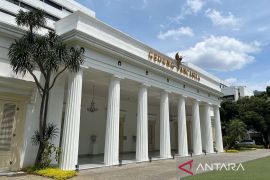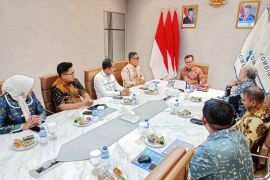"In general, there is no need to worry about Indonesias macroeconomic and financial stability as they are all good. The rupiah fluctuates like other currencies in the world," he stated here on Friday.
Martowardojo added that the current appreciation of the US dollar led to the weakening of currencies of various countries, but the rupiahs depreciation is still better than those of the Brazilian real and the Turkish lira that weakened since early this year.
"Year to date the rupiah has depreciated by 4.8 percent. Depreciation in developing countries such as Brazil was recorded at 13 percent, while it is 11 percent in Turkey. We know it has happened because of the improvement in the US economy," he explained.
The BI governor admitted that Indonesia still has its weaknesses, referring to the countrys current account deficit and the year-on-year national inflation that is still high as compared to those of other countries.
However, he affirmed that the government and Bank Indonesia have taken efforts to stabilize the current account to prevent the widening of the deficit and to curb inflation so that it remains stable at below 5 percent, which was the assumed figure set in the 2015 revised budget.
"Inflation tendency is good because the government has already scrapped oil subsidy, while the current account is also inclined towards improving as non-oil/gas exports are starting to rise. This is the dynamic, but in general, macroeconomic conditions and financial stability have been maintained," he noted.
The rupiah strengthened by 48 points, closing at Rp12,927, on Friday evening from the earlier value of Rp12,975 against the U. S. dollar.
An analyst from PT Platon Niaga Berjangka, Lukman Leong said that the hike in the countrys foreign exchange reserves in February was one of the factors that helped to boost the rupiah.
"The increase in the foreign exchange reserves shows that Indonesias economy is still strong amid the global slowdown," he remarked.
According to data from the central bank, Indonesias foreign exchange reserves was recorded at US$115.5 billion in February, up by US$1.3 billion from US$114.2 billion at the end of January.(*)
Editor: Heru Purwanto
Copyright © ANTARA 2015











